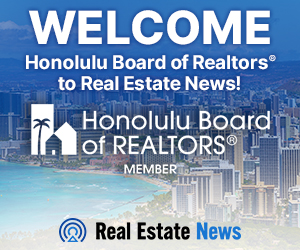Help first-time homebuyers better understand financing closing costs.
Continued from Part 1
Do all closing costs apply to services offered by the lender?
Closing costs often include 3rd party fees not paid to your lender. For example, an appraiser will be chosen by the lender to visit the property, estimate its value, and comment on the condition of the property. The appraisal report will be reviewed by the lender and help determine how much they will lend. A copy will also be provided to the customer for their review.
Can I get a breakdown of closing costs before I commit to a loan?
You can get a rough estimate of closing costs by using one of the many closing costs calculators online. An even better idea is to contact First Hawaiian Bank. Like all reputable lenders, we will provide a form called a Loan Estimate that details the closing costs for the mortgage you’re applying for - because you should always understand what you will owe.
How do I pay the closing costs?
Closing costs are the responsibility of the buyer. In a purchase transaction, it can be paid from the buyers’ own funds or a seller credit can cover some or all of the closing cost. In a refinance situation, in addition to paying closing cost out of pocket, the borrower may be able to finance by increasing their loan amount. The latter approach will make your monthly mortgage payments higher but can ease the initial cost of buying a home.
Where can I find more information about closing costs at First Hawaiian Bank?
Our mortgage loan officers at First Hawaiian Bank are a great source of information about closing costs in Hawaii. There are also several websites that offer state-by-state breakdowns of typical closing costs, such as an easy-to-read chart from Bankrate.com.
Speak with an expert on the topic and contact one of the knowledgeable loan officers at First Hawaiian Bank today. www.fhb.com/en/personal/mortgage.
Help first-time homebuyers better understand financing closing costs.
What are closing costs?
Put simply, closing costs are expenses over and above the interest rate on the mortgage loan. The closing costs on a home purchase are collected by the lender and cover services performed by either the lending institution or an outside party, such as a home appraiser.
How much can closing costs on a home purchase add to a real estate transaction?
The national average of closing costs is between 2% to 5% of the mortgage. So, on a $200,000 mortgage, closing costs can add up to $10,000.
What is included in closing costs?
To cover their expenses in processing loan applications, mortgage lenders often charge an application fee and loan origination fee. Some origination fees are a flat rate, and some are a percentage of the loan value.
Are “points” on a loan part of the closing costs?
Formally called “discount points,” they are technically prepaid interest on a mortgage loan and can be part of closing costs. Each point equals 1% of the loan value. But it’s more useful to think of points as a way of “buying” a lower interest rate.
For example: You are looking at a 30-year fixed mortgage at 4.00%. If you are willing to pay an additional point – that is, $2,000 on a $200,000 loan – the rate drops to 3.75% Those willing to pay 2 points ($4,000 in this example) get a rate of 3.5%.
Continues in Part 2
Speak with an expert on the topic and contact one of the knowledgeable loan officers at First Hawaiian Bank today. www.fhb.com/en/personal/mortgage.














